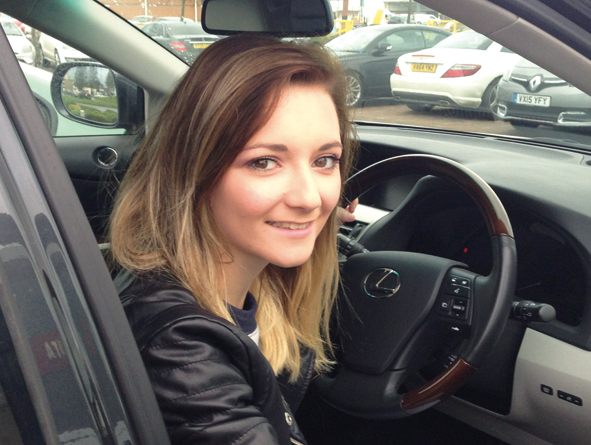Country roads drama drives latest safety campaign
It could have been a script for the BBC hospital drama Casualty. A young woman student driving home for Christmas loses control on a country road and smashes into a tree. Staggering, dazed, from the wreckage, she takes her life in her hands a second time, wandering off for help in a state of shock across a dual carriageway.
It could have been a script for the BBC hospital drama Casualty. A young woman student driving home for Christmas loses control on a country road and smashes into a tree. Staggering, dazed, from the wreckage, she takes her life in her hands a second time, wandering off for help in a state of shock across a dual carriageway.
But for University of Gloucestershire drama student Heather Armstrong (pictured above) this near-death experience was real-life and not a work of fiction. Thankful to survive, it is why she is telling her story to raise awareness of Gloucestershire Road Safety Partnerships country roads campaign.
The partnership, which is made up of the countys police, fire and rescue service, county council and police and crime commissioner (PCC) launched its campaign earlier this month.
More than two-thirds of the countys roads are in the countryside. The aim of the campaign is to highlight the danger of losing concentration or driving with complacency on roads where seven out of ten fatal crashes happen.
PCC Martin Surl said it was an important campaign because, due to the rural nature of the county, most drivers will use country roads at some time, but they cannot afford to underestimate the inherent dangers or ignore the evidence.
The hard facts are that in one four-year period 96 people were killed on country roads in Gloucestershire compared to 11 on motorways, he added.
We know that a sizeable proportion of the road using public do their very best to keep within the law, but it is also apparent that a minority still pose a significant risk to themselves and others by making inappropriate choices.
Roads do not cause accidents and crashes, it is how we use them.
Ms Armstrong, 18, from Maidenhead, explains in the campaign: I was in a rush to get home. I wanted to see my family because I hadnt been back for a couple of weeks.
It had been raining but I dont know why I crashed. I just remember turning the wheel, hitting the central reservation and smashing into a tree. My car spun round and ended up facing the wrong way and I was knocked unconscious.
When I came round the whole of the passenger side was smashed in. I was in shock and knew I had crashed but I didnt know how bad it was. I couldnt find my phone so I knew I had to get out of the car and go for help.
A policeman told my dad it was the worst crash they had come across that night and I was very lucky I wasnt killed.
She warns: Most people say its the young boy drivers that crash, but it can be anyone. You have to be aware of the risks. Anything can happen and you wont remember why. It can be the simplest thing like changing a radio station.


